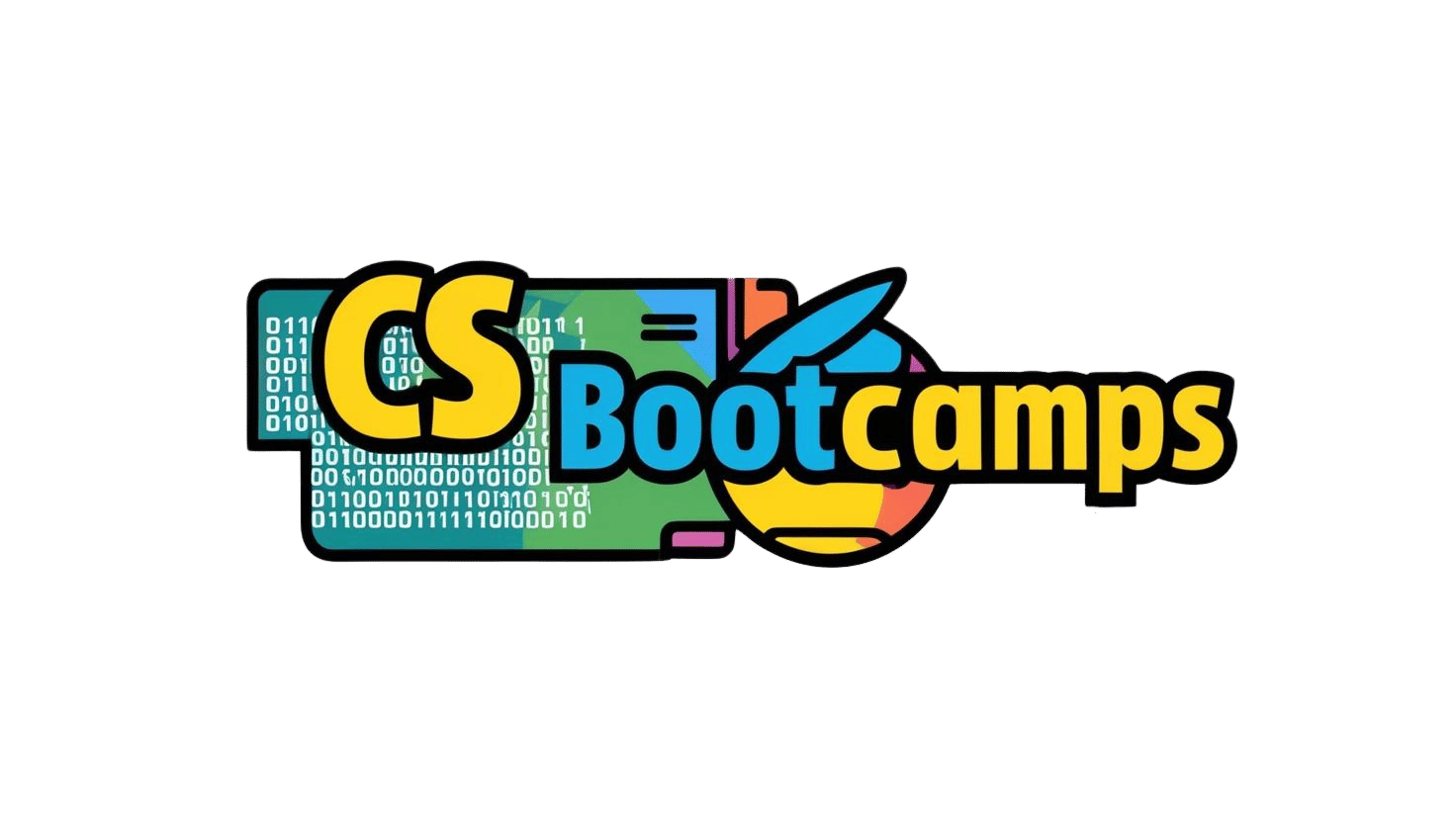
The tech industry is booming, and the demand for skilled developers shows no signs of slowing down. With lucrative job opportunities and a future-proof career path, more people are exploring non-traditional routes to break into tech. Enter coding bootcamps.
Coding bootcamps promise to fast-track your tech career, offering practical, hands-on learning in just weeks or months rather than years. But are coding bootcamps worth it in 2025? While these programs continue to evolve and remain a viable education option, there are still lingering questions about their effectiveness and the financial commitments involved. This guide will help you weigh the pros and cons, evaluate your options, and decide if a bootcamp aligns with your goals.
Are Coding Bootcamps Worth It?
For many aspiring developers, the answer is yes—but with a few caveats. In today’s competitive job market, entry-level engineers face significant challenges to land a job. Differentiation and visibility are crucial, as coding bootcamps provide foundational skills, but additional soft skills and networking are essential for success. Here’s a breakdown of the benefits and challenges of bootcamps:
Pros of Coding Bootcamps
- Accelerated Learning: Bootcamps condense years of programming education into a few months. They’re designed to get you job-ready as quickly as possible.
- Practical Skills: Bootcamps prioritize hands-on projects, teaching you the tools and frameworks employers look for.
- Career Support: Many programs provide job placement assistance, interview practice, and networking opportunities.
- Cost-Effective: Compared to a four-year computer science degree, bootcamp tuition is significantly lower, ranging from $5,000 to $20,000 on average.
Cons of Coding Bootcamps
- Intensity: Bootcamps are full-time commitments. The fast pace can be overwhelming for some.
- No Degree: While bootcamps equip you with technical skills, they don’t offer the academic credential of a traditional degree. Understanding what truly works in securing internships or jobs in the tech industry involves not just learning to code but also acquiring the skills necessary to produce functional and professional code.
- Variable ROI: Not all bootcamps deliver equal outcomes. Research is key.
Who Should Consider a Coding Bootcamp?
Coding bootcamps are ideal for:
- Career Switchers: Looking to transition to tech from a non-technical field? Bootcamps are a great entry point, but getting a job will require demonstrating your commitment to the field.
- Upskillers: Professionals aiming to add coding to their existing skill set.
- Self-Taught Developers: If you’ve dabbled in coding but need structure and accountability, bootcamps can refine your skills.
ROI vs. College Degrees
While coding bootcamps lack the prestige of a computer science degree, they often provide faster returns on investment. Grads from top bootcamps report salaries ranging from $60,000 to $120,000, depending on location and specialization. For many, the time savings and high earning potential, along with the ability to build new things and adapt to ongoing changes in technology, make bootcamps a compelling alternative.
What Is a Coding Bootcamp?
A coding bootcamp is an intensive training program designed to teach digital skills like web development, data science, and software engineering in a short amount of time. These programs are particularly effective in preparing graduates for lucrative tech roles, including that of a data scientist.
Structure of a Bootcamp
- Immersive Programs: Full-time, in-person or online courses that last from 8 to 16 weeks. As the landscape of coding bootcamps evolves, we may be witnessing the end of an era for certain programs, particularly those that lack quality and fail to secure jobs for graduates.
- Part-Time Programs: Flexible schedules for working professionals.
- Self-Paced Options: Learn at your own speed with on-demand resources.
How Does It Compare?
- Versus Traditional Education: Bootcamps are faster and more practical but lack theoretical depth and a degree.
- Versus Self-Taught Paths: Self-teaching offers freedom but can lack the structure, mentorship, and networking opportunities bootcamps provide.
Are Coding Bootcamps Worth the Time and Money?
The cost and time commitment of a coding bootcamp are significant, but they can pay off if approached strategically. It often takes coding bootcamp graduates between 1 to 6 months to secure their first job after graduation, depending on factors such as networking and utilizing career services.
Tuition and Financing
- Bootcamp tuition typically ranges from $5,000 to $20,000. Investing in a high-quality bootcamp can yield a good return on investment in terms of job opportunities.
- Look for flexible payment options like:
- Deferred Tuition: Pay after landing a job.
- Income Share Agreements (ISAs): Pay a percentage of your salary post-graduation.
- Scholarships: Many bootcamps offer financial aid for underrepresented groups in tech.
Salary Boost
- Graduates often see salary increases between 40-75%.
- Entry-level roles in web development, data analytics, or software engineering can start at $60,000+. Having some coding experience before enrolling in a bootcamp can significantly enhance your learning experience and better prepare you for these roles.
Career Support
A strong bootcamp will provide:
- Resume and LinkedIn assistance.
- Mock interviews.
- Direct connections to employer partners.
It’s really important to critically evaluate the value of these bootcamps. Graduates often land roles in full-stack development, backend engineering, data analysis, and even product management.
What Makes Some Bootcamps Worth It?
Not all bootcamps are created equal. Here’s how to separate the best from the rest:
Key Factors to Evaluate
- Placement Rates: Look for programs with transparent job placement stats.
- Real-World Projects: Ensure the curriculum includes hands-on experience with industry-relevant tools and emphasizes the importance of learning to code effectively. Coding bootcamps that focus on teaching coding languages and practices necessary for employment in the tech industry can be particularly beneficial.
- Mentorship: Access to mentors can significantly accelerate your learning curve.
Red Flags
- Lack of Transparency: Avoid bootcamps that don’t disclose placement rates or graduate outcomes. In the evolving landscape of job opportunities for entry-level engineers, transparency is crucial, especially given the worst job market seen for graduates in recent years.
- Outdated Curriculum: Tech evolves fast. The best bootcamps teach the tools and languages in demand today.
Becoming a Software Engineer Through a Bootcamp
You don’t need a computer science degree to become a software engineer. Coding bootcamps offer a proven pathway to enter the industry without four years of college. These bootcamps provide students with essential skills and training, equipping them to succeed in the tech industry.
What Employers Think
Many companies are open to hiring bootcamp grads, especially startups and mid-sized tech firms. What they value most is your ability to demonstrate:
- Proficiency with programming languages.
- Problem-solving and real-world project experience.
- A strong portfolio showcasing your work.
The overall performance and satisfaction of coding bootcamp graduates in their careers are often highlighted, with many finding success through job search strategies, salary growth, and the necessity of a broader skill set beyond just coding for successful career advancement in tech.
Skills for Job-Readiness
- Master in-demand technologies like JavaScript, Python, React, and SQL.
- Take the first step to enroll in a coding bootcamp to build transferable skills such as collaboration, communication, and adaptability.
Coding Bootcamp vs. Web Development Courses
While online web development courses can help you learn the basics, they lack the rigor and intensity of a bootcamp, which typically lasts around six months.
Why Choose a Coding Bootcamp?
- Structured Learning: Bootcamps provide a clear roadmap for mastering coding skills.
- Accountability: With deadlines and support systems in place, you’re more likely to complete the program.
- Portfolio-Building: Bootcamps guide you through projects that make your portfolio stand out to employers.
- Goal-Oriented: Understanding what you want from a bootcamp, whether it’s a career transition or simply learning coding for fun, can help you choose the right program and maximize its value.
How the Job Market Looks for Bootcamp Graduates
The tech job market in 2025 is expected to be strong, with continued demand for skilled developers across industries. However, the days of simply cold applying for jobs and expecting numerous interviews are unfortunately gone. Graduates of coding bootcamps now face significant challenges in securing interviews and positions, necessitating proactive job search strategies to stand out in a competitive environment.
Job Opportunities
- Web developers, data analysts, software engineers, QA testers, and more. Many bootcamp alumni went from different careers into tech, recounting their journeys and the significant changes in their professional paths and salaries after completing the bootcamp.
- Growth areas include AI, cybersecurity, and cloud computing.
Non-Traditional Paths
- Freelancing: Many bootcamp grads work as freelance developers.
- Remote Work: Tech companies increasingly offer remote positions, making bootcamp grads more appealing to global employers.
Bootcamp Specializations: From Full Stack to Data Science
Choosing the right specialization depends on your career goals and market demand. Coding bootcamp graduates are successfully applying the skills they learned in their programs to secure jobs in various tech fields.
Full-Stack Development
- Master both frontend and backend technologies.
- When considering taking a coding bootcamp, it’s important to evaluate the implications of investing in such programs. Learn tools like HTML, CSS, JavaScript, Node.js, and MongoDB.
Data Science
- Focus on data visualization, machine learning, and Python. Discuss the challenges and outcomes facing graduates of coding boot camps in today’s tech industry, such as the increasing difficulty for entry-level engineers to secure jobs and the importance of vetting instructors before committing to a bootcamp.
- Recommended for those who enjoy statistics and problem-solving.
Are Coding Bootcamps Worth It for You in 2025?
Coding bootcamps are worth it for those willing to invest time, effort, and resources into mastering a new skill set. They’re ideal for career switchers, upskillers, and self-taught coders looking to formalize their knowledge. It’s crucial to know which specific programming languages are in demand and to be aware of what to expect from a coding bootcamp before committing.
Before enrolling in a bootcamp, consider:
- Placement rates and alumni success stories.
- Curriculum relevance.
- Financing options.
Take the Next Step Toward Your Tech Career
If you’re ready to start your coding journey, check out CS Bootcamps’ beginner-friendly online courses. With expert guidance and hands-on practice, you’ll be well on your way to landing your dream role in tech. Start learning today!
